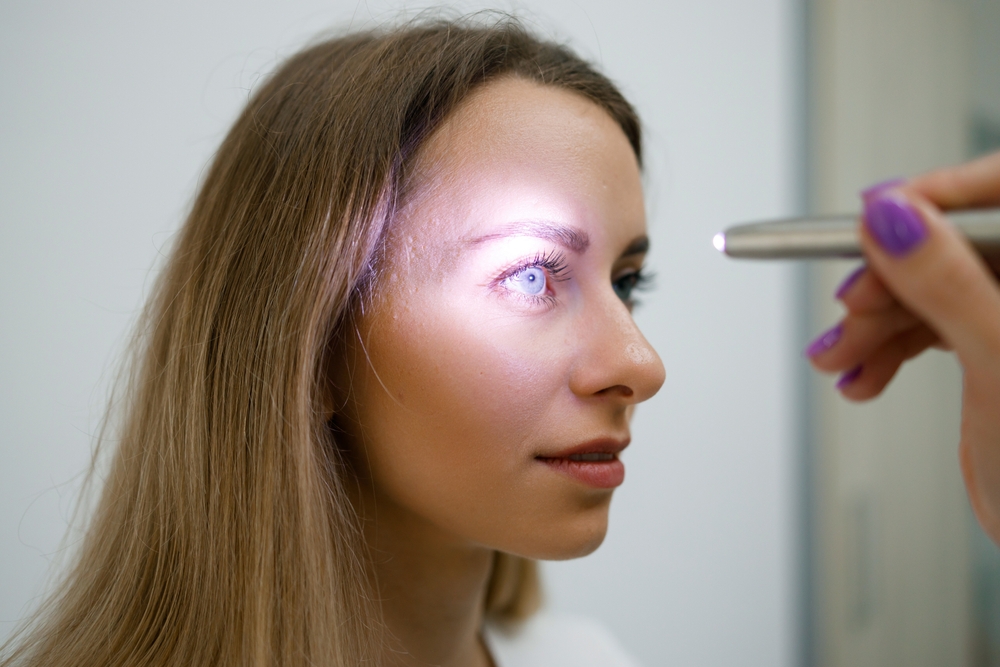
Diabetic retinopathy is a condition that affects the blood vessels of the retina, often causing vision impairment or even blindness if left untreated. This complication of diabetes is one of the leading causes of vision loss globally and is a concern that individuals with diabetes should be aware of and actively work to prevent.
What is Diabetic Retinopathy?
Diabetic retinopathy occurs when high blood sugar levels damage the small blood vessels in the retina, the light-sensitive tissue at the back of the eye. This damage can lead to blood and other fluids leaking into the retina, causing it to swell and resulting in blurred or distorted vision. Over time, as the condition progresses, it can lead to the growth of abnormal blood vessels, further contributing to vision problems and potentially resulting in severe vision loss.
Stages of Diabetic Retinopathy
Diabetic retinopathy progresses in stages, typically beginning with mild symptoms and advancing if not managed:
1. Mild Non-Proliferative Retinopathy: Small areas of the retina swell, and microaneurysms (tiny bulges in blood vessels) may occur.
2. Moderate Non-Proliferative Retinopathy: Blood vessels swell further, causing abnormal blood flow to the retina.
3. Severe Non-Proliferative Retinopathy: Blocked blood vessels deprive areas of the retina of blood supply, which can signal the retina to grow new, fragile blood vessels.
4. Proliferative Diabetic Retinopathy: New, delicate blood vessels develop along the retina and in the vitreous (gel-like fluid in the center of the eye). These blood vessels can bleed into the eye and cause severe vision loss.
Symptoms to Watch For
In the early stages, diabetic retinopathy often presents no symptoms, making regular eye exams crucial for early detection. As the condition progresses, individuals may experience:
Blurred vision
Dark or empty spots in their field of vision
Difficulty seeing at night
Sudden vision loss or flashes of light in severe cases
Risk Factors for Diabetic Retinopathy
While anyone with diabetes is at risk, several factors increase the likelihood of developing diabetic retinopathy:
Duration of Diabetes: The longer an individual has diabetes, the greater their risk.
Blood Sugar Levels: Poor blood sugar control accelerates damage to blood vessels in the retina.
High Blood Pressure: Elevated blood pressure adds stress to blood vessels, increasing the risk of retinopathy.
High Cholesterol: High cholesterol levels can exacerbate blood vessel damage in the retina.
Prevention and Management
While diabetic retinopathy can’t always be prevented, individuals can take several steps to reduce their risk:
Manage Blood Sugar Levels: Controlling blood sugar is one of the most effective ways to slow the progression of diabetic retinopathy.
Maintain Healthy Blood Pressure and Cholesterol Levels: Keeping these levels in check can help reduce stress on blood vessels.
Regular Eye Exams: Early detection through annual dilated eye exams is essential. Eye care specialists can detect early changes in the retina, even before symptoms arise.
Lifestyle Changes: Maintaining a healthy diet, exercising regularly, and avoiding smoking can protect both eye and overall health.
Treatment Options
If detected early, treatment for diabetic retinopathy can effectively manage the condition and preserve vision. Treatment options include:
Laser Treatment: Also known as photocoagulation, this procedure can shrink abnormal blood vessels and reduce the risk of vision loss.
Injections: Medications injected into the eye can help reduce swelling and prevent the growth of abnormal blood vessels.
Vitrectomy: In advanced cases, surgery may be necessary to remove blood from the eye or scar tissue affecting the retina.
Prioritizing Eye Health at Kibo Eyecare
At Kibo Eyecare, we emphasize the importance of routine eye exams, particularly for individuals with diabetes. Our optometrists are equipped with advanced diagnostic tools to detect diabetic retinopathy in its earliest stages and offer guidance on managing this condition to protect your vision.
Early detection of diabetic retinopathy can make all the difference. Schedule your comprehensive eye exam with Kibo Eyecare today, and let our experts help you protect your vision. Contact our office in Glastonbury, Connecticut, by calling (860) 659-5900 to book an appointment.







